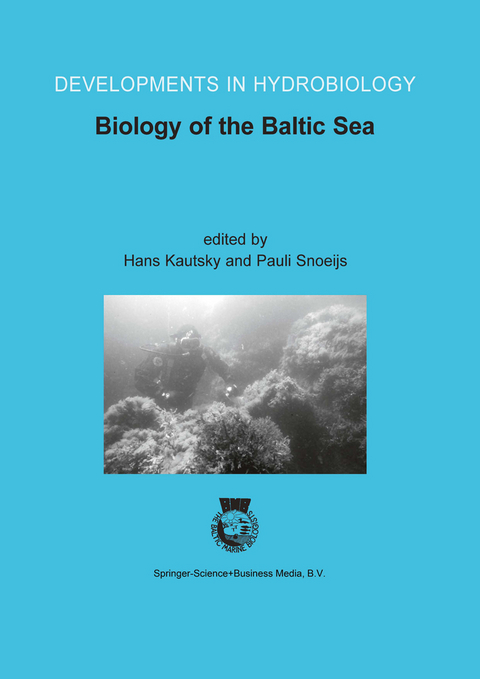
Biology of the Baltic Sea
Springer (Verlag)
978-90-481-6550-6 (ISBN)
New perspectives through brackish water ecology.- Physiological and proteomic responses in Myfilus edulis exposed to PCBs and PAHs extracted from Baltic Sea sediments.- Modelling of pristine depth limits for macrophyte growth in the southern Baltic Sea.- Active carbon uptake in Laminaria digitata and L. saccharina (Phaeophyta) is driven by a proton pump in the plasma membrane.- Growth and C:N:P ratios in copepods grazing on N- or Si-limited phytoplankton blooms.- Effects of grazing and excretion by pelagic mysids (Mysis spp.) on the size structure and biomass of the phytoplankton community.- Food and habitat choice of the isopod Idotea baltica in the northeastern Baltic Sea.- Blue mussels (Mytilus edulis) in the diet of roach (Rutilus rutilus) in outer archipelago areas of the western Gulf of Finland, Baltic Sea.- The effects of turbidity and light intensity on the consumption of mysids by juvenile perch (Perca fluviatilis L.).- The growth of pikeperch (Sander lucioperca L.) and perch (Perca fluviatilis L.) under different water temperature and salinity conditions in the Curonian Lagoon and Lithuanian coastal waters of the Baltic Sea.- Effects of temperature on egg and larval survival of cod (Gadus morhua) and sprat (Sprattus sprattus) in the Baltic Sea — implications for stock development.- Influence of dissolved organic matter from terrestrial origin on the changes of dinoflagellate species composition in the Gulf of Riga, Baltic Sea.- Temporal and spatial patterns of crustacean zooplankton dynamics in a transitional lagoon ecosystem.- Classification and description of phytobenthic communities in the waters of the West-Estonian Archipelago Sea.- Phytobenthos and macrozoobenthos of the Slupsk Bank stony reefs, Baltic Sea.- Climatic and hydrological controls over thezoobenthos in a southern Baltic coastal lagoon.- Effects of land-rise on the development of a coastal ecosystem of the Baltic Sea and its implications for the long-term fate of 14C discharges.- Distribution, population structure and salinity tolerance of the invasive amphipod Gmelinoides fasciatus (Stebbing) in the Neva Estuary (Gulf of Finland, Baltic Sea).- Establishment of the zebra mussel, Dreissena polymorpha (Pallas), in the Neva Estuary (Gulf of Finland, Baltic Sea): distribution, population structure and possible impact on local unionid bivalves.- The round goby (Neogobius melanostomus) in the Gulf of Gda?sk — a species introducton into the Baltic Sea.- Baltic Sea eutrophication: area-specific ecological consequences.- How does eutrophication affect different life stages of Fucus vesiculosus in the Baltic Sea? — a conceptual model.- Can different vegetative states in shallow coastal bays of the Baltic Sea be linked to internal nutrient levels and external nutrient load?.- Factors controlling long-term changes of the eutrophicated ecosystem of Pärnu Bay, Gulf of Riga.- Baltic Marine Biologists (BMB).
| Reihe/Serie | Developments in Hydrobiology ; 176 |
|---|---|
| Zusatzinfo | X, 271 p. |
| Verlagsort | Dordrecht |
| Sprache | englisch |
| Maße | 210 x 297 mm |
| Themenwelt | Naturwissenschaften ► Biologie ► Evolution |
| Naturwissenschaften ► Biologie ► Limnologie / Meeresbiologie | |
| Naturwissenschaften ► Biologie ► Ökologie / Naturschutz | |
| ISBN-10 | 90-481-6550-4 / 9048165504 |
| ISBN-13 | 978-90-481-6550-6 / 9789048165506 |
| Zustand | Neuware |
| Informationen gemäß Produktsicherheitsverordnung (GPSR) | |
| Haben Sie eine Frage zum Produkt? |
aus dem Bereich


